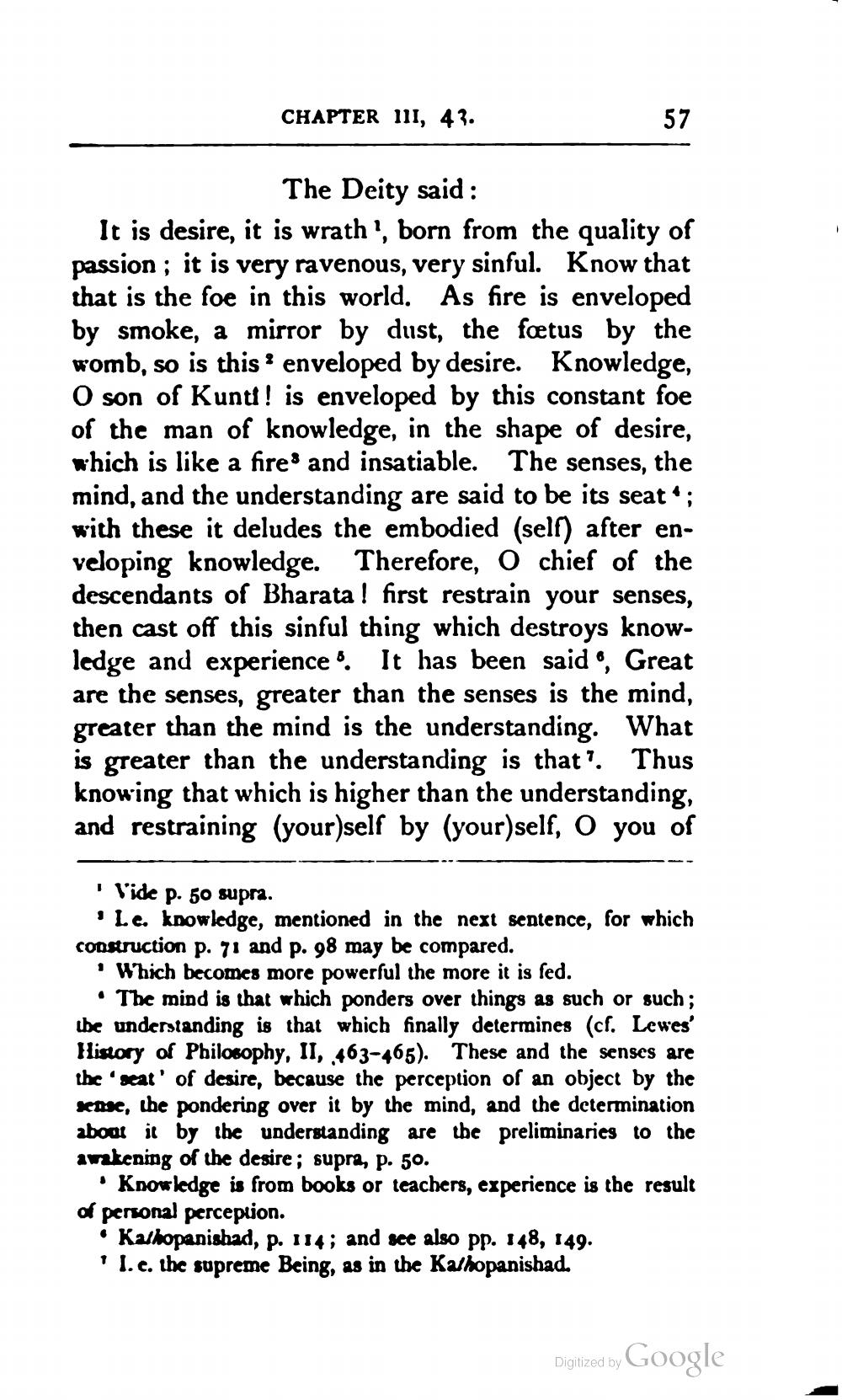________________
CHAPTER III, 43.
517
The Deity said: It is desire, it is wrath', born from the quality of passion; it is very ravenous, very sinful. Know that that is the foe in this world. As fire is enveloped by smoke, a mirror by dust, the fætus by the womb, so is this? enveloped by desire. Knowledge, O son of Kunti! is enveloped by this constant foe of the man of knowledge, in the shape of desire, which is like a fires and insatiable. The senses, the mind, and the understanding are said to be its seat *; with these it deludes the embodied (self) after enveloping knowledge. Therefore, O chief of the descendants of Bharata ! first restrain your senses, then cast off this sinful thing which destroys knowledge and experience. It has been said ", Great are the senses, greater than the senses is the mind, greater than the mind is the understanding. What is greater than the understanding is that?. Thus knowing that which is higher than the understanding, and restraining (your)self by (yourself, O you of
" Vide p. 50 supra.
"Lc. knowledge, mentioned in the next sentence, for which construction p. 71 and p. 98 may be compared.
• Which becomes more powerful the more it is fed.
• The mind is that which ponders over things as such or such; ibe understanding is that which finally determines (cf. Lewes' History of Philosophy, II, .463-465). These and the senses are the 'seat' of desire, because the perception of an object by the sense, the pondering over it by the mind, and the determination about it by the understanding are the preliminaries to the awakening of the desire ; supra, p. 50.
Knowledge is from books or teachers, experience is the result of personal perception.
• Kalhopanishad, p. 114; and see also pp. 148, 149. 'I. e. the supreme Being, as in the Kalhopanishad.
Digitized by Google




